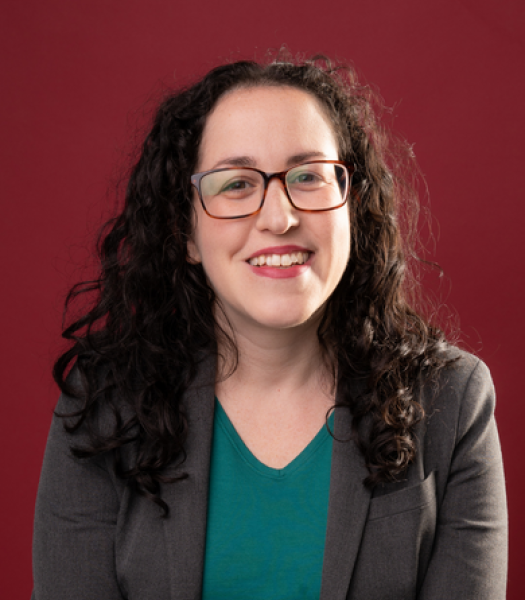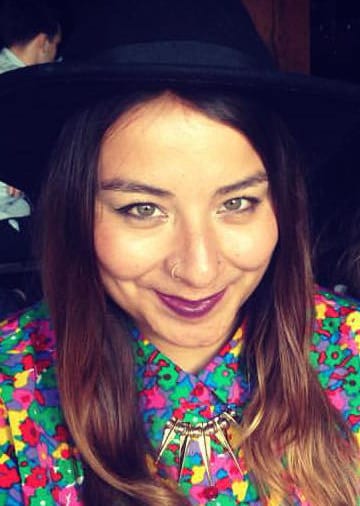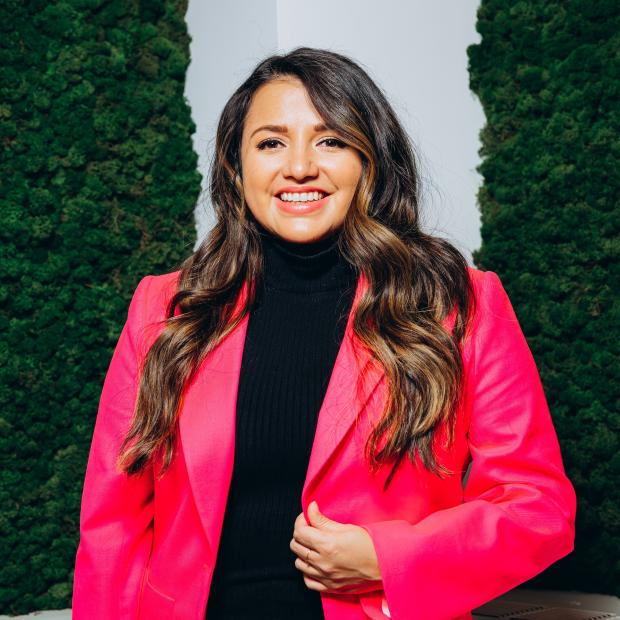15 Latina Activists Working to Protect Reproductive Rights
From América Ramirez to Myra Gissel Duran, these 15 Latina reproductive activists making a change for women of color and Latinas through their work

Photos: ANSIRH; Rewire News Group; Spitfire Spark Change
This year, abortion and reproductive rights have never been more at risk in the U.S. following the overturn of Roe. vs. Wade. While many countries in Latin America are making historic strides, like Mexico which just decriminalized abortion nationwide, the U.S. is falling behind and regressing to restrictive anti-abortion policies. But, as history has shown us, reproductive justice activists then and now continue to be the voice for change. Given the U.S.’s long history of sterilizing Latinas and immigrant women without their consent, maybe it shouldn’t be a surprise to see Latinas at the forefront of the fight for reproductive rights. This isn’t a comprehensive list but a select round-up of Latinas doing groundbreaking and essential work for and in the community. Read on to learn more about 15 incredible Latina reproductive justice activists making a change in the movement.
Eloisa Lopez
Eloisa Lopez is a first-gen Mexicana fighting for reproductive rights for her community in Arizona. After having three abortions, surviving domestic violence, and fighting the family court system, she has dedicated her life to providing autonomy, liberation, and support for abortion seekers. Through Pro-Choice Arizona & the Abortion Fund of Arizona, she works to provide funding, reproductive health education, and counseling to low-income and underserved communities in Arizona. A single mom of two, she credits her abortions for allowing her to help others make the best decisions for their bodies and lives.
Steph Harold

Based in Queens, Steph Harold is a Jewish Brazilian-American abortion rights activist, writer, researcher, social scientist, and data analyst. She works at Advancing New Standards in Reproductive Health (ANSIRH), based at the University of California San Francisco studying how abortion is depicted in media and entertainment. She looks at how it then affects how the procedure is perceived in culture and society, and how the political landscape responds as a result. She also offers suggestions on how these depictions, both positive and negative, can be improved. Through her additional work as a member of the Board of Directors of All-Options, she supports people and families through all reproductive health experiences, not just abortion but also miscarriage, pregnancy, birth, and parenting.
Stephanie Loraine Piñeiro
Stephanie Loraine Piñeiro is a bisexual Puerto Rican activist, abortion funder, storyteller, and clinical social worker working to push back against the harmful anti-abortion policies in her state of Florida. After having multiple abortions throughout her life, she pushes against the cultural stigma from the Latinx community that she experienced and supports abortion seekers in Orlando with mutual aid, funding, rides, childcare, and education. Most of all, she shares her abortion stories with others to destigmatize the procedure, raise awareness, and give voice to others who have had similar experiences. She has won many awards throughout her life for her groundbreaking work, especially in one of the most oppressive states in the U.S., continuing to inspire others to do the same.
Fabiola Carrion
Fabiola Carrion is an Afro-Indigenous Peruvian attorney and reproductive justice advocate. After immigrating to the U.S. when she was 13 years old, she pursued a career in law to ensure equal rights for all, including reproductive health. As a result of her work with National Health Law Program and a Policy Advisor, she has helped state legislators and advocates from across the U.S. in their reproductive policies including providing legal analysis and policy trainings. She has also protected sexual and reproductive rights in Latin America as an Advocacy Program Officer at Planned Parenthood Global where the projects she designed and developed led to new progressive policies in the region. She works for a wide number of reproductive justice organizations to help low-income and underserved communities ensure their health rights. In all aspects of her work, she hopes to offer resources and a path toward autonomy no matter their health and medical needs.
Myra Gissel Duran

Myra Gissel Durán is a first-gen Chicana feminist and grassroots organizer in Pomona who works to undo the harmful effects of oppressive, imperialist systems against marginalized communities. Using her education in women’s studies, labor and workplace studies, and feminism, she centers women of color, transgender and gender non-conforming young people in all of her reproductive justice advocacy work. As part of her work for If/When/How, she provides abortion access and care to youth, women, and marginalized genders in California.
Lupe M. Rodríguez
Lupe M. Rodríguez is an activist and neuroscientist who has been working in the reproductive justice movement for over 15 years. After earning a degree from Harvard, she left the science field to improve reproductive health conditions in Mexico and Peru, as well as California. Today, she provides service, support, and education to abortion seekers, as well as advocates for policy changes in politics. Using her personal experiences immigrating to the U.S. from Mexico, she especially advocates for immigrants to have access to healthcare, including reproductive health, education, and resources.
América Ramírez
América Ramirez is a Mexican American immigrant daughter from Colorado with a background in integrative physiology, ethnic studies, and public health. While at the University of Colorado Boulder, her alma mater, she used her experiences working with youth and fighting for social justice to fight for reproductive health rights among marginalized communities including Latina teens. Still based in Colorado, she works to fight for social equity, civic engagement, and access to education and healthcare, as well as dismantle the systems that make oppression and cultural stigma against reproductive rights possible.
Cathy Torres
Cathy Torres is an activist and fundraiser working to break down financial barriers for those seeking abortions and fight against larger societal and political policies that make the procedure inaccessible. After many years working to improve abortion access in her state, she now raises money and facilitates mutual aid for abortion seekers as an organizing manager for Frontera Fund.
Laura Jiménez
Laura Jiménez has worked in the reproductive justice movement for over 20 years and for a variety of organizations, all led by women of color. Using her own experiences with pregnancy and birth, as well as her background in immigrant rights and economic justice, she works to provide a variety of services to women of color and low-income communities of color. These include providing access to doulas, birth support, and financial aid, all to address the intersections of immigrant rights and reproductive justice. She has been serving as the Executive Director of California Latinas for Reproductive Justice for over a decade and is a prominent voice in the reproductive space.
Daniela Ramirez

Based in New York City, Daniela Ramirez is a reproductive justice advocate who works with nonprofit organizations and media outlets as a consultant to reach the Latinx community. In all areas of her work, she hopes to help communities of color engage with reproductive health services and organizations. In the face of anti-abortion and anti-immigrant policies, she feels it is more important than ever for the Latinx community to have access to abortions and other reproductive health services, as well as share their stories and experiences.
Dr. Melissa Madera
Dr. Melissa Madera is a queer, first-gen Dominican American from Washington Heights who has worn many hats in the fight for reproductive justice including consultant, researcher, writer, podcaster, storyteller, story-listener, historian, curator, educator, and doula. As a consultant, she focuses on reproductive health and rights for a variety of organizations and companies and has also conducted research on self-managed abortions. She is perhaps most well-known for her podcast “The Abortion Diary,” which she created in 2013 to share her abortion story. Since then, she has traveled across the country and all over the world to record and capture stories from strangers about their own reproductive experiences. As part of the podcast, she curates “ar·ti·facts: abortion stories and histories,” a traveling exhibit that highlights abortion experiences through stories, images, and objects. Today, she has archived more than 300 stories from across locations, backgrounds, and demographics, and has been featured in many media outlets for her work.
Amanda Beatriz Williams

Based in Austin, Texas, Amanda Beatriz Williams is a queer Tejana and immigrant daughter who has been working in the reproductive health movement for over ten years. During her time as the Executive Director of Lilith Fund, she helped raise money for abortion seekers in south and central Texas, as well as offered support and counseling by emphasizing a positive culture around abortion and helping clients work through their emotions post-abortion. In the face of anti-abortion policies, including bans that forbid insurance companies from covering abortions, she’s more dedicated than ever, even after leaving Lilith Fund, to ensure that people have access to safe abortion care and reproductive health resources.
Luz Rodriguez

Luz Rodriguez is a Puerto Rican advocate, speaker, educator, and researcher who has worked to ensure reproductive health rights for over five decades. Being involved with the Young Lords, Black Panthers, and the civil rights movements from a young age allowed her to consider a career in politics and social justice. However, it was researching and hearing personal stories about the U.S.’s involvement in sterilizing Puerto Rican women as a means of population control that pushed her to enter the reproductive justice space. Since then, she has opened a social justice, arts, and activism consulting practice, and was a co-founder of the SisterSong Women of Color Reproductive Justice Collective that brought together BIPOC and women-led reproductive justice groups across ethnic and racial divides in the ’90s.
Jessica González-Rojas
Based in Queens, Jessica González-Rojas is a queer activist, organizer, politician, and expert on healthcare reform and gender and racial justice. She is of Paraguayan and Puerto Rican descent and has used her background as a catalyst for change, advocating for BIPOC, immigrants, and LGBTQIA+ communities. Prior to entering the political sphere, she fought for access to affordable health and reproductive care on behalf of Latinx and immigrant communities. Since 2021, she has been a Member of the New York State Assembly from the 34th district.
Dr. Herminia Palacio
Dr. Herminia Palacio has worked in academic and clinical medicine, governmental public health, and philanthropy for over 25 years. In her various roles, she has transformed the public healthcare systems in New York City and Houston to better serve marginalized communities, including in disaster situations like in New Orleans during Hurricane Katrina. Today, she is advancing sexual and reproductive justice by providing health resources across the U.S. and internationally.













